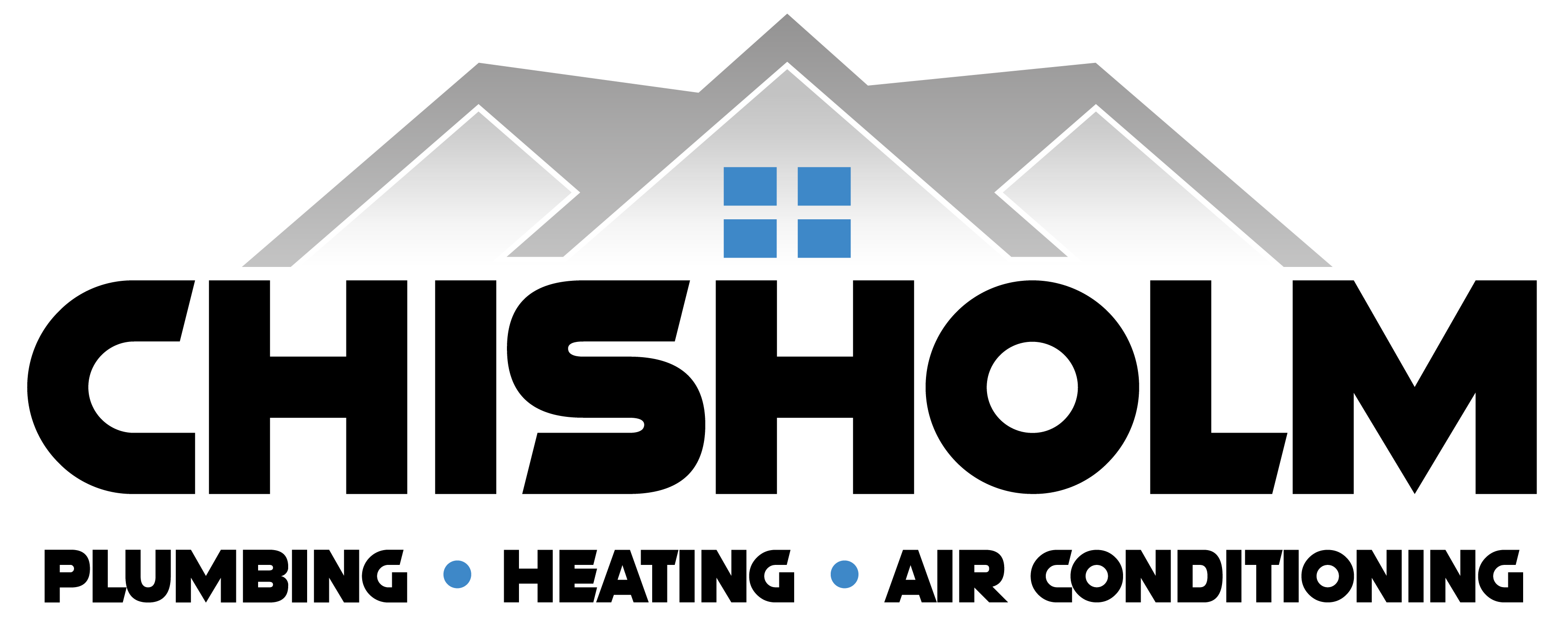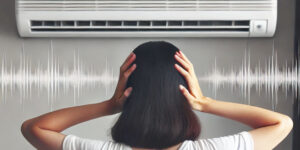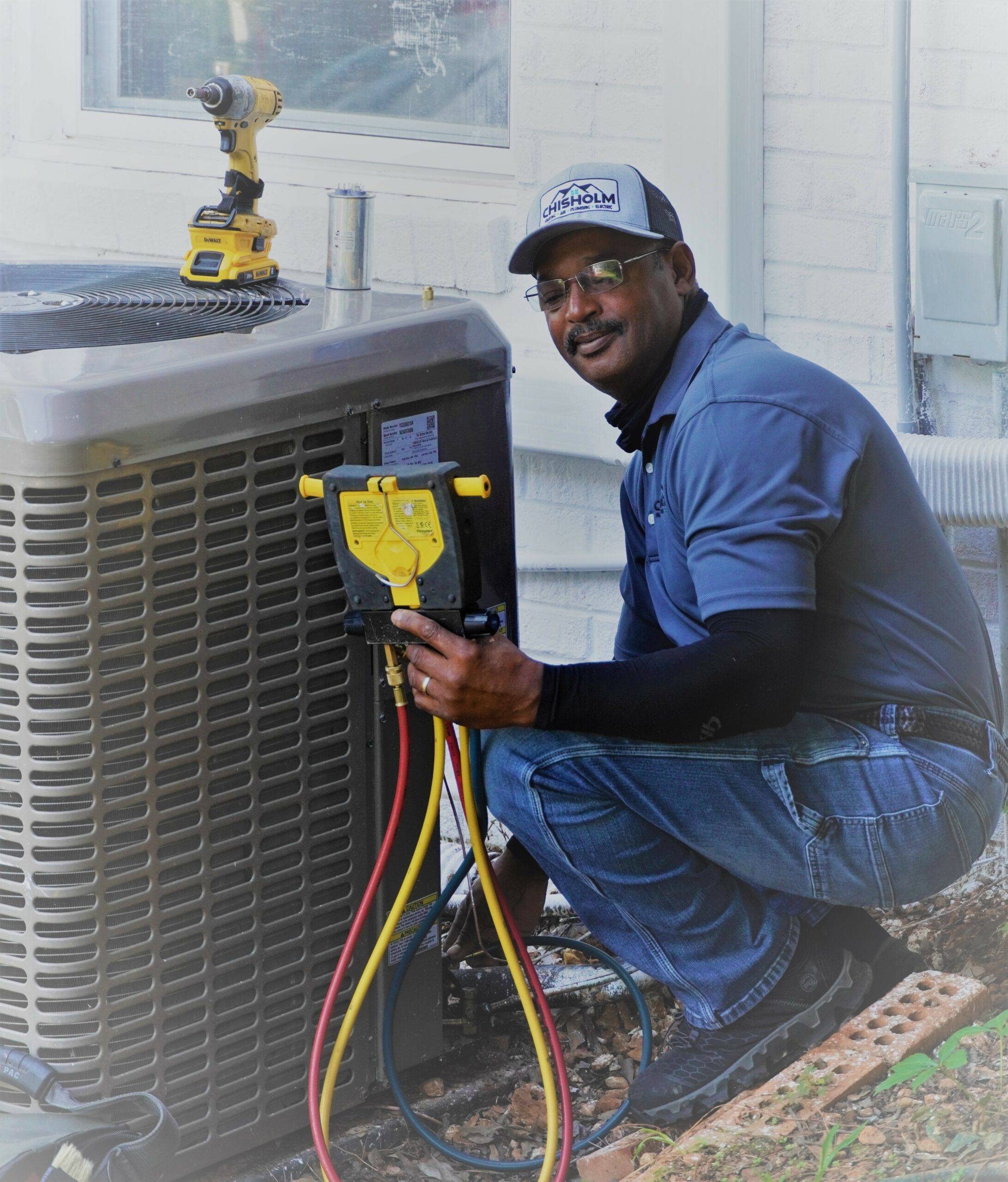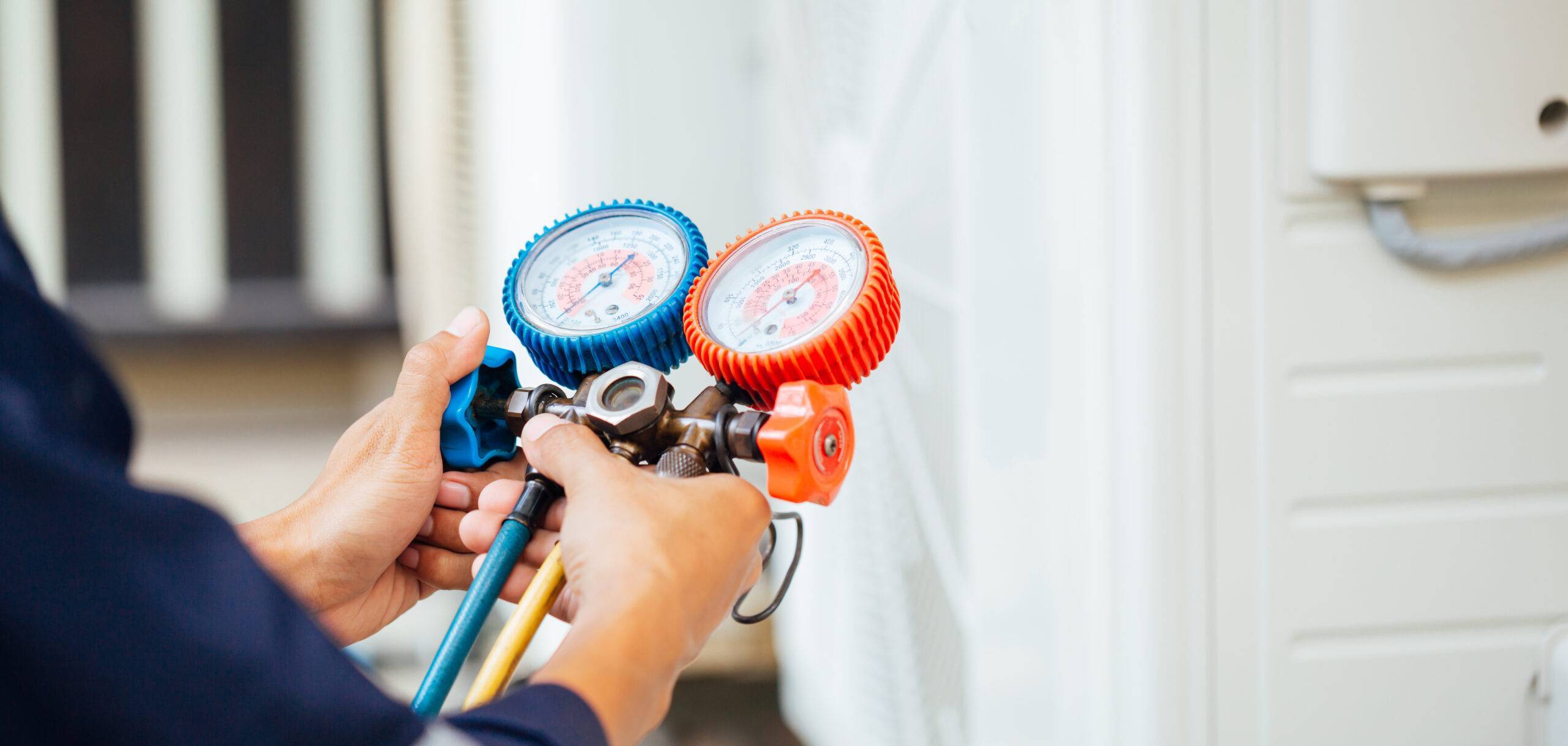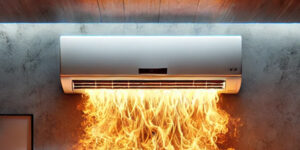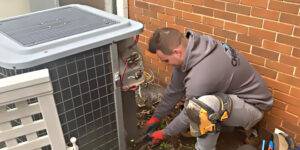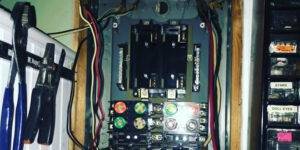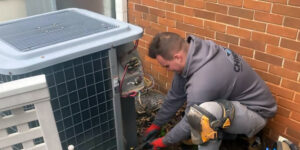
Experiencing water leaking from your air conditioning unit can be alarming, especially during the hot and humid summers in Greer, SC. This issue is not only inconvenient but can also lead to significant damage to your home if not addressed promptly. Understanding why your AC might be leaking and how to fix it is crucial for maintaining a comfortable and safe home environment.
In this blog post, we’ll explore common causes of AC leaks, offer practical solutions, and provide preventive measures to help you avoid future problems. Whether you’re dealing with a minor issue or need professional assistance, Chisholm Plumbing, Heating & Air Conditioning is here to help you keep your home cool and dry.
Common Causes of AC Leaking Water Inside
Understanding the root causes of an air conditioner leaking water inside your home is the first step toward resolving the issue. Here are some common culprits:
1. Clogged Condensate Drain Line
The condensate drain line is responsible for removing the moisture your AC unit extracts from the air. Over time, this line can become clogged with dirt, dust, or mold, causing water to back up and leak inside your home.
2. Dirty Air Filters
Dirty air filters can restrict airflow over the evaporator coil, causing the coil to freeze. When the coil melts, the excess water can overflow the drain pan and leak inside.
3. Low Refrigerant Levels
Low refrigerant levels can lead to lower pressure in the AC system, causing the evaporator coil to freeze. Like dirty filters, when the coil thaws, it may result in water leakage.
4. Damaged or Disconnected Drain Pan
The drain pan collects water that drips off the evaporator coil. If the pan is cracked, rusted, or improperly positioned, water may leak into your home.
5. Improper Installation
Improper installation can lead to several issues, including incorrect sizing or a poorly designed drainage system. This can cause the unit to malfunction and leak water inside.
Understanding these common issues can help you diagnose the problem and determine whether it’s something you can fix on your own or if you need to seek professional assistance.
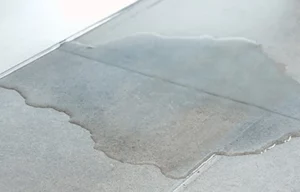
Potential Solutions for Each Cause
Once you identify the cause of your AC leaking water, you can explore potential solutions to resolve the issue. Here are some practical steps you can take:
| Cause | DIY Solution | Professional Solution |
| Clogged Condensate Drain Line | Use a wet/dry vacuum to clear blockages. Pour a vinegar and water mixture down the line to prevent clogs. | Contact Chisholm Plumbing, Heating & Air Conditioning for inspection and cleaning. |
| Dirty Air Filters | Check and replace air filters every 1-3 months to maintain airflow and prevent leaks. | Schedule regular maintenance with Chisholm Plumbing, Heating & Air Conditioning. |
| Low Refrigerant Levels | Not recommended for DIY due to the complexity and need for specialized tools. | Have refrigerant levels checked and refilled by a certified technician. |
| Damaged or Disconnected Drain Pan | Inspect for visible cracks or damage; use waterproof sealant for temporary repairs. | For permanent fixes or replacement, consult Chisholm Plumbing, Heating & Air Conditioning. |
| Improper Installation | No DIY solution available. Proper installation is crucial for performance and safety. | Get the system evaluated and corrected by professionals at Chisholm Plumbing, Heating & Air Conditioning. |
Addressing these issues promptly can prevent further damage to your home and ensure your AC system operates efficiently. If you’re unsure about handling these solutions on your own, don’t hesitate to reach out to professionals for assistance.
Preventive Measures to Avoid Future Leaks
Preventing AC leaks involves regular maintenance and proactive care. Here are some key measures you can take to avoid leaks in the future:
Regular Maintenance
- Schedule Annual Inspections: Regular check-ups by a professional can catch potential issues before they become major problems. Contact Chisholm Plumbing, Heating & Air Conditioning for comprehensive AC maintenance services.
- Clean and Replace Air Filters: Change air filters every 1-3 months to ensure optimal airflow and prevent dust buildup that can lead to leaks.
Keep the Condensate Drain Line Clear
- Routine Cleaning: Pour a mixture of vinegar and water down the condensate drain line every few months to prevent clogs. A clean drain line helps keep your system running smoothly.
Monitor Refrigerant Levels
- Professional Checks: Ensure your refrigerant levels are checked regularly by a professional to prevent freezing coils, which can lead to leaks.
Check the Drain Pan
- Inspect for Damage: Regularly inspect the drain pan for signs of rust or cracks. Replace it if necessary to avoid water overflow.
Ensure Proper Installation
- Hire Professionals: When installing or replacing an AC unit, use certified professionals to ensure the system is installed correctly. Chisholm Plumbing, Heating & Air Conditioning offers expert installation services to ensure your unit is set up for optimal performance.
By implementing these preventive measures, you can extend the lifespan of your AC unit and maintain a comfortable, leak-free home environment. Regular maintenance and inspections are key to preventing issues before they arise.
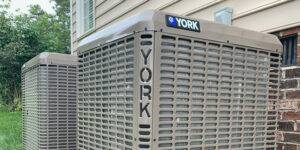
Conclusion
AC leaks can be a nuisance, but understanding their causes and solutions can help you address the issue quickly and effectively. Whether it’s a clogged condensate drain line, dirty air filters, or low refrigerant levels, taking prompt action can prevent further damage to your home and ensure your air conditioning system runs smoothly.
Preventive measures, such as regular maintenance and professional inspections, are essential for avoiding future leaks. By keeping up with routine care and addressing issues as they arise, you can enjoy a comfortable and worry-free home environment.
If you’re experiencing AC leaks or need professional assistance, don’t hesitate to contact Chisholm Plumbing, Heating & Air Conditioning. Our expert team is ready to help with all your HVAC needs, from repairs and maintenance to new installations. Visit our service area page to see if we cover your location and schedule a service today.
